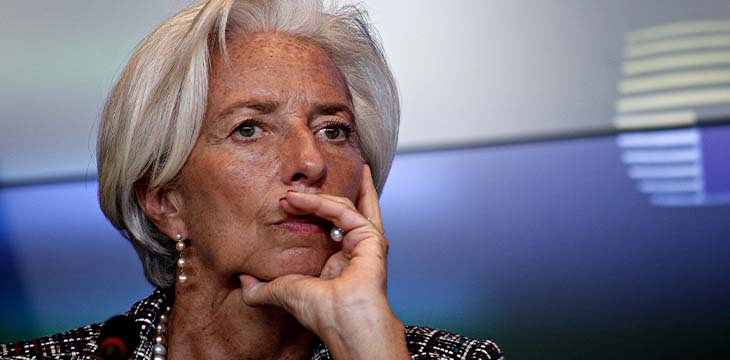|
Getting your Trinity Audio player ready...
|
Christine Lagarde, head of the European Central Bank (ECB), has recommended for the European Union (EU) to bring digital currency staking, as well as lending and borrowing decentralized finance protocols and companies under regulatory oversight.
Legarde made the call while testifying before the European Parliament in her capacity as the head of the European Systemic Risk Board (ESRB) this week, as reported by Fortune.
While commending efforts made to regulate digital currencies in the EU’s Markets in Crypto-Assets (MiCA) bill, she argued that a follow-up framework that will focus on the two aspects of the market is already needed. She suggests naming it MiCA II, saying that it is needed because digital currency staking and lending are rapidly increasing activities in the market.
“MiCA II should regulate the activities of crypto asset staking and lending, which are definitely increasing,” she said. “Bitcoin will not be covered by MiCA I, but hopefully for MiCA II, you will take that into account,” Lagarde said.
In addition, she warned that leaving any aspect of the “unexplored and uncharted” digital currency industry would leave consumers at risk. This is because the innovative market is fraught with fraud, illegitimate claims about valuations, speculation, and criminal dealings.
The EU’s MiCA bill, which was first drafted in 2020, is expected to be passed this month, according to a Bloomberg report that cites insider information. When passed, the bill will come into force in 2024.
Lending protocols drama behind the call for regulations
Legarde’s proposal is coming at a time when digital currency lending protocols and companies are facing challenges. Recently, Celsius suspended all withdrawals and asset swaps on its platform due to not having enough liquidity to honor all withdrawals.
Another lending protocol drama also unfolded on the Solana blockchain network. Solend, an algorithmic decentralized protocol for lending and borrowing, disabled the borrowing of USDT and USDC stablecoins.
The team explained that the protocol was at risk from a whale account with a position worth over 5.7 million SOL ($170 million). A proposal to temporarily take control of the whale’s account was met with backlash from the digital currency sector after originally getting enough votes to pass and execute the takeover.
Regardless, the ECB head has long held that the digital assets market poses a risk to consumers. In a previous statement, she described digital currencies as lacking intrinsic value due to their lack of assets backing them.
Watch the BSV Global Blockchain Convention Dubai 2022 Day 1 here:
https://www.youtube.com/watch?v=ggbZ8YedpBE
Watch the BSV Global Blockchain Convention Dubai 2022 Day 2 here:
https://www.youtube.com/watch?v=RzJsCRb6zt8
Watch the BSV Global Blockchain Convention Dubai 2022 Day 3 here:
https://www.youtube.com/watch?v=RzSCrXf1Ywc

 02-28-2026
02-28-2026 




